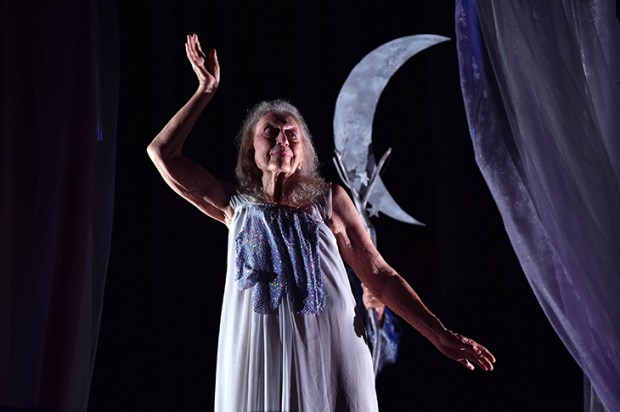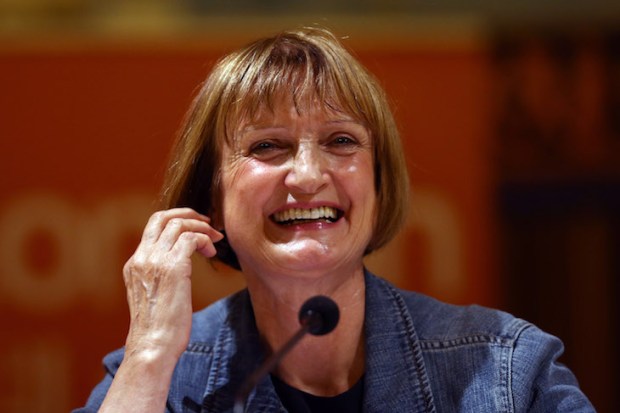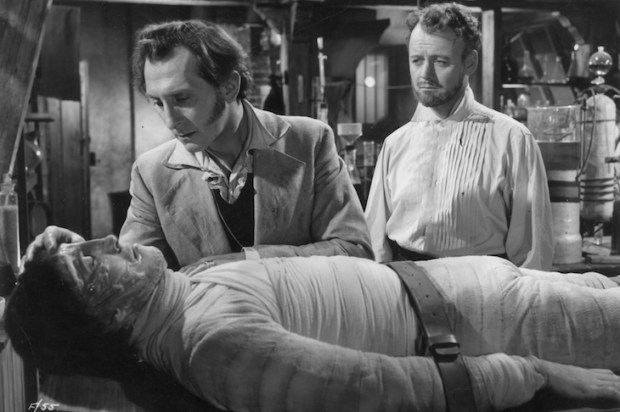This year’s Free Thinking festival at the Sage in Gateshead has been asking the question, Who’s in Control?. Oddly, or perhaps presciently, as soon as I typed that last word ‘control’, the power went off in the midst of Monday’s storm. No word processor, no internet connection, no phone line, almost no radio (since the only battery-operated radio I now possess is in the bathroom). A weekend of debates and talks about who’s really in charge of our health, our imagination, our privacy soon becomes a lot of hot air in the face of hurricane-force winds. The most sophisticated technology is useless without power, and yet in spite of this we’ve allowed ourselves to become so dependent on technology we can no longer do anything purposeful without it.
In her free-thinking feature Production Line Living (Radio 3, Sunday night), A.L. Kennedy took us back 100 years to Detroit and the very first moving assembly line. Devised by Henry Ford to make cars that were cheap enough for his workers to buy, the line could only succeed if everyone kept up the pace. It increased efficiency and made goods more available to more people but at another kind of cost — the unbearable boredom of doing small and partial tasks over and over again, every day, every week, every year, with the added indignity of being at the mercy of a machine.
Kennedy talked to the Guardian journalist Polly Toynbee, who, while researching a book on working-class life, took several factory jobs, the worst of which was spreading cake mixture that never stopped coming. ‘It was desperate,’ she recalled. As Kennedy reminded us, though, Toynbee could afford ‘to pay attention’ to what she was doing, to see the job for what it was, because she knew the job was short-term; for her, ‘resignation was unnecessary’.
Many of these jobs have now gone. Production Line working has been replaced by Production Line living, says Kennedy, as factory lines are swapped for call-centre lines, which require their workers to follow a set script, never to interact, to work like automatons. Time-and-motion has entered every aspect of life, as we take on board more and more unpaid jobs, doing the work online that used to be done by the long-departed backroom staff at banks, insurance companies, customer services.
With her dry, acerbic delivery, and questing, free-thinking mind, Kennedy exemplifies the best of women on radio; a voice that is precise, melodic, but never gives too much away, that leaves us wondering, what did she mean? This week on Radio 4 Jane Garvey has been celebrating the female pioneers of broadcasting — Annie Nightingale, Barbara Mandell (the first female newsreader), Jacqui Oatley – in Getting On Air. On Monday she reminded us that The Week in Westminster, which was first heard in 1929, began as a programme about Parliament that was made by women for women.
It was dreamt up by the formidable Hilda Matheson, the fledgling BBC’s first director of talks. Matheson wanted to reach out to the new female voters (a year earlier the vote had been extended to all women over 21) not as a propaganda machine for the political parties but to create a programme that gave its listeners real insights into what went on in SW1. She insisted that the programme should be presented by a woman and should combine reportage with interviews, usually with female MPs. It’s even more extraordinary, knowing this, that it has taken until now for there to be equal numbers of women and men on Radio 4’s flagship news programme (and for Ritula Shah to take over from Robin Lustig on The World Tonight). Whatever happened to Matheson’s heirs?
Don’t Log Off is back on Radio 4 and I just can’t resist Alan Dein’s peephole radio as he surfs the net at night looking for someone, anyone to talk to. This week he followed up on a story he first encountered 18 months ago. Bryan, who lives in Idaho, fell in love with a woman he met on the internet. Anna, though, lived in Russia and spoke no English. He spoke no Russian. They could only talk to each other through Google Translate, which, if you’ve ever tried it, is as unreliable, and as slow and halting, as the running subtitles on TV.
You might think it would be impossible to develop a relationship when it takes minutes to work out the meaning of a single word like ‘cousin’ or ‘friend’ or ‘wife’, let alone ‘Are you a serial killer?’ But undeterred Anna sold up in Russia and flew to Idaho with her two children with the idea of marrying Bryan.
Dein was so drawn in by their story that he also took a flight to Idaho to meet Bryan and see whether it would work out. Before he knew it, he and his producer Laurence Grissell were called up as witnesses to a marriage that could never have taken place without Google Translate.
Got something to add? Join the discussion and comment below.
Get 10 issues for just $10
Subscribe to The Spectator Australia today for the next 10 magazine issues, plus full online access, for just $10.
You might disagree with half of it, but you’ll enjoy reading all of it. Try your first month for free, then just $2 a week for the remainder of your first year.













Comments
Don't miss out
Join the conversation with other Spectator Australia readers. Subscribe to leave a comment.
SUBSCRIBEAlready a subscriber? Log in